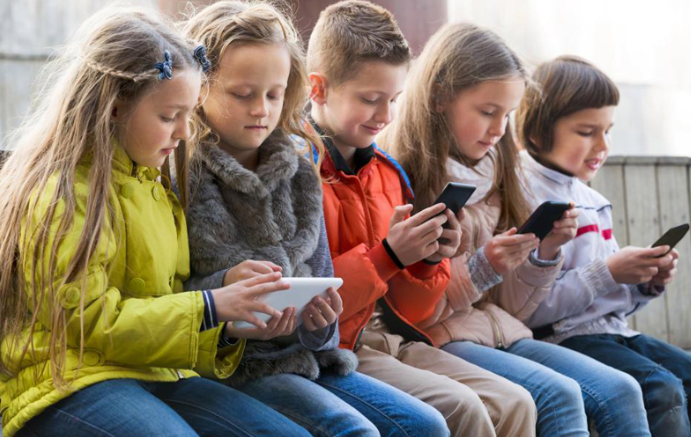Fifty per cent of the UK’s 10-year-olds owned a smartphone in 2019, according to a report by media regulator Ofcom.
The amount of young phone owners doubled between the ages of nine and 10, which Ofcom dubbed “the age of digital independence”.
In addition, 24% of 3 and 4-year-olds had their own tablet, and 15% of them were allowed to take it to bed.
Ofcom’s annual report looks at the media habits of children, and the types of devices they are using.
The 2019 study was based on more than 3,200 interviews with children and parents around the UK.

“The mobile phone is the device of choice for children,” said Yih-Choung Teh, strategy and research group director at Ofcom.
“I’m conscious that for these children who have never known a world without the internet, in many respects their online and offline worlds are indistinguishable.”
The report also found that more older children were using social media to express their support for social causes and organisations, with 18% having shared or commented on a post, and one in ten having signed an online petition.
Ofcom dubbed this “the Greta effect” after the 17-year-old environmental campaigner Greta Thunberg.
Other key findings for 2019 included:
- 48% of girls aged 5-15 played online games, compared with 71% of boys. Boys spent twice as long playing, clocking up 14.5 hours per week, compared with 7.5 for girls
- Snapchat and Facebook remained the most popular social media platforms of older children, but 62% were also using WhatsApp (up from 43% in 2018)
- 99% of children aged 5-15 used a TV set, 27% used a smart speaker and 22% used a radio
- 80% of the children in the report watched video-on-demand, and 25% watched no live broadcast TV at all. One nine-year-old girl told researchers: “I don’t really like the TV because you can’t pick what channels are on it”.
Ofcom also interviewed parents about their concerns. It found that 45% of parents thought the benefits of children using the internet outweighed the risks, but there was an overall increase in parental concern about young people seeing content that might lead them to self-harm.
Just under half (47%) of the parents spoken to were worried about pressure to spend money within games, especially on loot boxes, where the reward is not clear before purchase.



